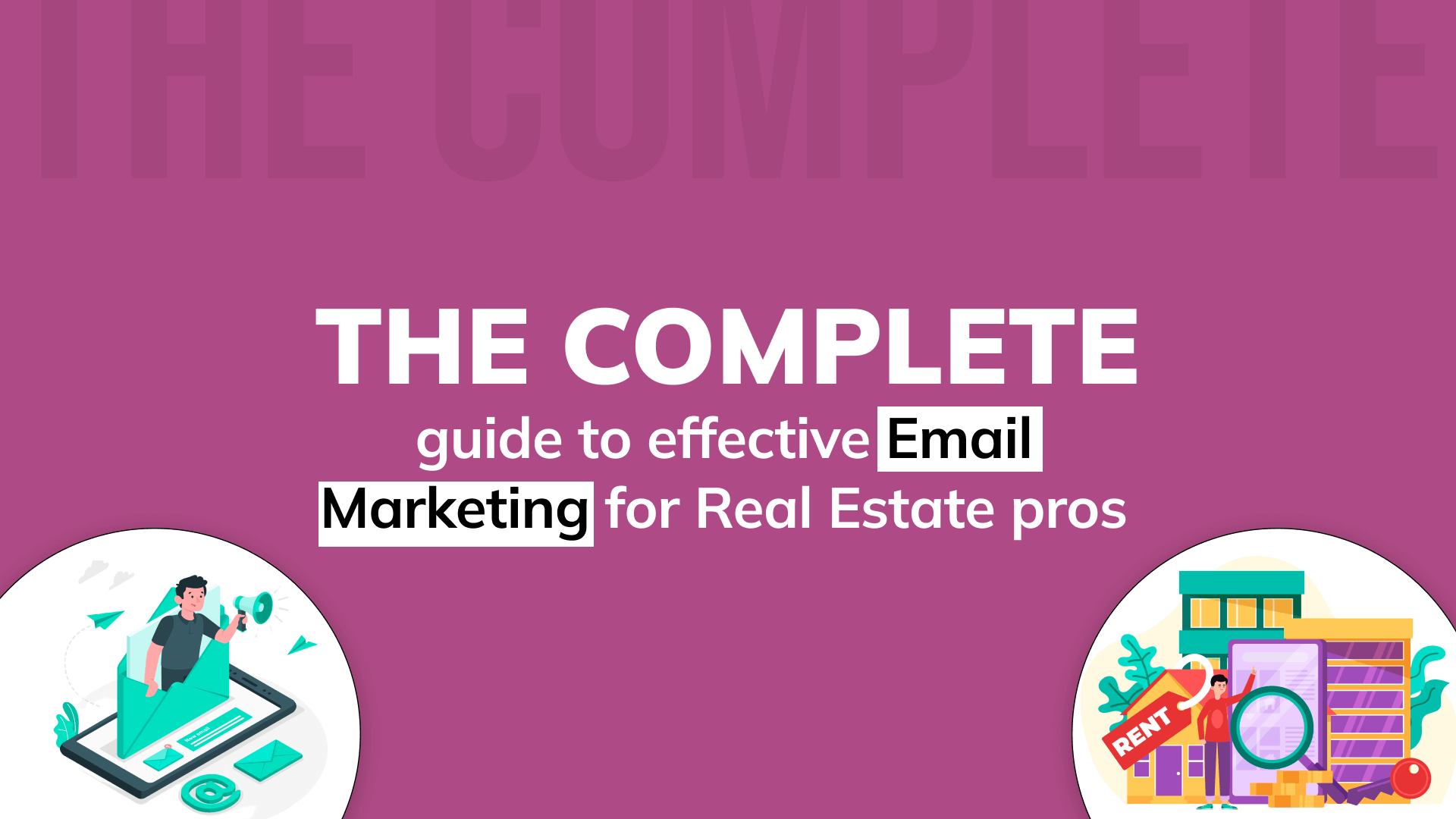
Email marketing is an essential component of any successful real estate professional’s digital marketing strategy. It allows you to connect with your audience, build relationships, and stay top-of-mind, even when they’re not actively looking to buy or sell. However, creating effective email campaigns that deliver results can be challenging. In this ultimate guide, we’ll cover everything you need to know to create a successful email marketing strategy for your real estate business.
Segmenting Your Audience
The first step in creating a successful email marketing campaign is to segment your audience. This involves dividing your email list into smaller groups based on specific criteria such as location, type of property, stage of the buying or selling process, and more. Segmenting your audience allows you to create targeted campaigns that resonate with each group. For example, you can send customized content to your list of buyers that is different from the content you send to your sellers.
When segmenting your audience, consider using data from your CRM system or website analytics to better understand your audience’s behavior and preferences. This information can help you create more targeted and effective email campaigns.
Crafting Effective Emails
Once you’ve segmented your audience, the next step is to craft effective emails that grab their attention and drive engagement. A successful email campaign has several key components, including a compelling subject line, clear and concise content, and a strong call-to-action. It’s also essential to use visuals such as photos or videos to make your emails more engaging.
When crafting your email content, focus on providing value to your audience. For example, you can share relevant industry news or provide tips and advice related to buying or selling real estate. Make sure to use a conversational tone and avoid overly promotional language that can turn off your audience.
Timing and Frequency
Timing and frequency are critical factors in the success of your email campaigns. You need to find the right balance between sending enough emails to stay top-of-mind without overwhelming your audience. It’s also crucial to send your emails at the right time. For example, sending a new listing email on a Friday afternoon might not be the best time, as most people are preparing for their weekend plans.
To determine the best timing and frequency for your email campaigns, consider testing different schedules and measuring the results. Pay attention to open rates and click-through rates to determine the most effective time and frequency for your campaigns.
Email Automation
Email automation is a powerful tool that can help you save time and improve the effectiveness of your campaigns. With email automation, you can set up a series of emails that are sent automatically based on specific triggers, such as a new lead, a website visit, or a specific action taken by the recipient. This allows you to create personalized campaigns that deliver the right message at the right time.
When setting up your email automation, consider the customer journey and create campaigns that are tailored to each stage. For example, you can create a welcome series for new subscribers, a nurturing series for leads, and a follow-up series for past clients.
Measuring Success
Finally, it’s essential to measure the success of your email campaigns to identify what’s working and what’s not. You can track key metrics such as open rates, click-through rates, and conversion rates to determine the effectiveness of your campaigns. This information can help you refine your strategy and improve your future campaigns.
When analyzing your email metrics, pay attention to trends and patterns over time. This can help you identify areas of improvement and adjust your strategy accordingly. Additionally, consider using A/B testing to test different elements of your campaigns, such as subject lines or calls-to-action, to determine the most effective approach.
FAQs:
1. What are some best practices for subject lines in real estate emails?
Some best practices for subject lines in real estate emails include using personalization, creating a sense of urgency or exclusivity, and keeping the subject line short and to the point. For example, “Exclusive pre-listing opportunity in your neighborhood” or “Last chance to tour this stunning property” can grab the reader’s attention and encourage them to open the email.
2. How often should I send emails to my audience?
The frequency of your emails will depend on your audience and the content you’re sending. However, it’s generally recommended to send at least one email per month to stay top-of-mind. You can also increase or decrease the frequency based on your audience’s behavior and engagement levels.
3. How do I measure the effectiveness of my email campaigns?
To measure the effectiveness of your email campaigns, you can track metrics such as open rates, click-through rates, and conversion rates. Additionally, consider analyzing trends and patterns over time to identify areas of improvement.
4. Can I use email automation for my real estate business?
Yes, email automation can be a valuable tool for real estate professionals. It allows you to create personalized campaigns that are sent automatically based on specific triggers, such as a new lead or website visit. This can help you save time and improve the effectiveness of your campaigns.
5. How can I improve the engagement of my email campaigns?
To improve the engagement of your email campaigns, focus on providing value to your audience through relevant content and personalized messaging. You can also use visuals such as photos or videos to make your emails more engaging. Additionally, consider testing different elements of your campaigns, such as subject lines or calls-to-action, to determine the most effective approach.
Conclusion:
In conclusion, email marketing can be a powerful tool for real estate professionals to reach their audience and drive business. With i-engage, a digital marketing company with a team of experts trained to create growth strategies for real estate clients, you can create a successful email marketing strategy. i-engage has worked with numerous real estate clients, such as Ruchi Realty, Sunil Agrawal and Associates, SS Infinitus, Oscar Fort, D2R, and Noor-us-sabah Residency, to name a few. By utilizing effective segmentation, crafting compelling emails, considering timing and frequency, using email automation, and measuring success, you can build a successful email marketing campaign that delivers results and helps grow your real estate business. Remember, email marketing is an ongoing process, and i-engage can help you continually test and refine your approach to improve your results over time.

Comments are closed.